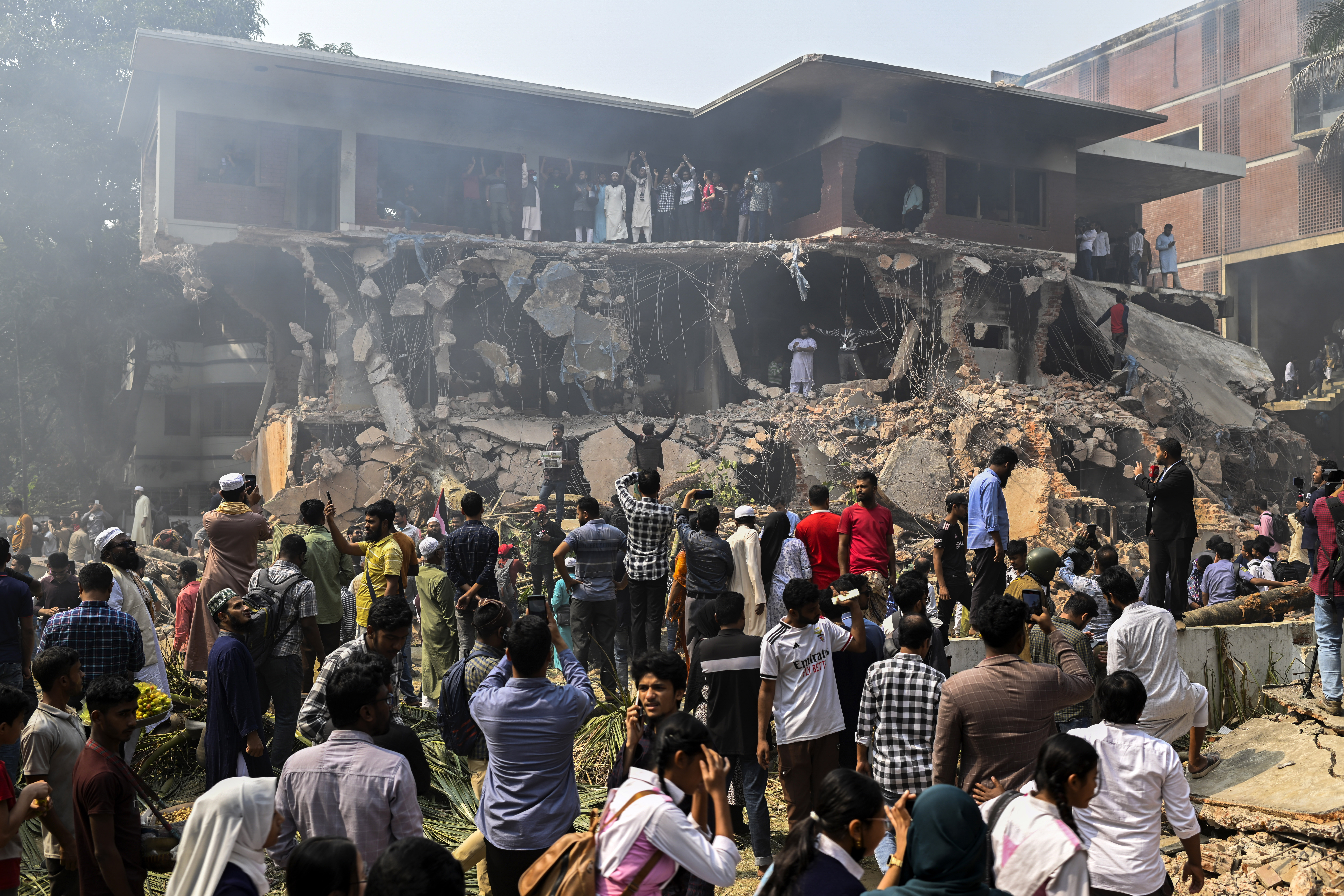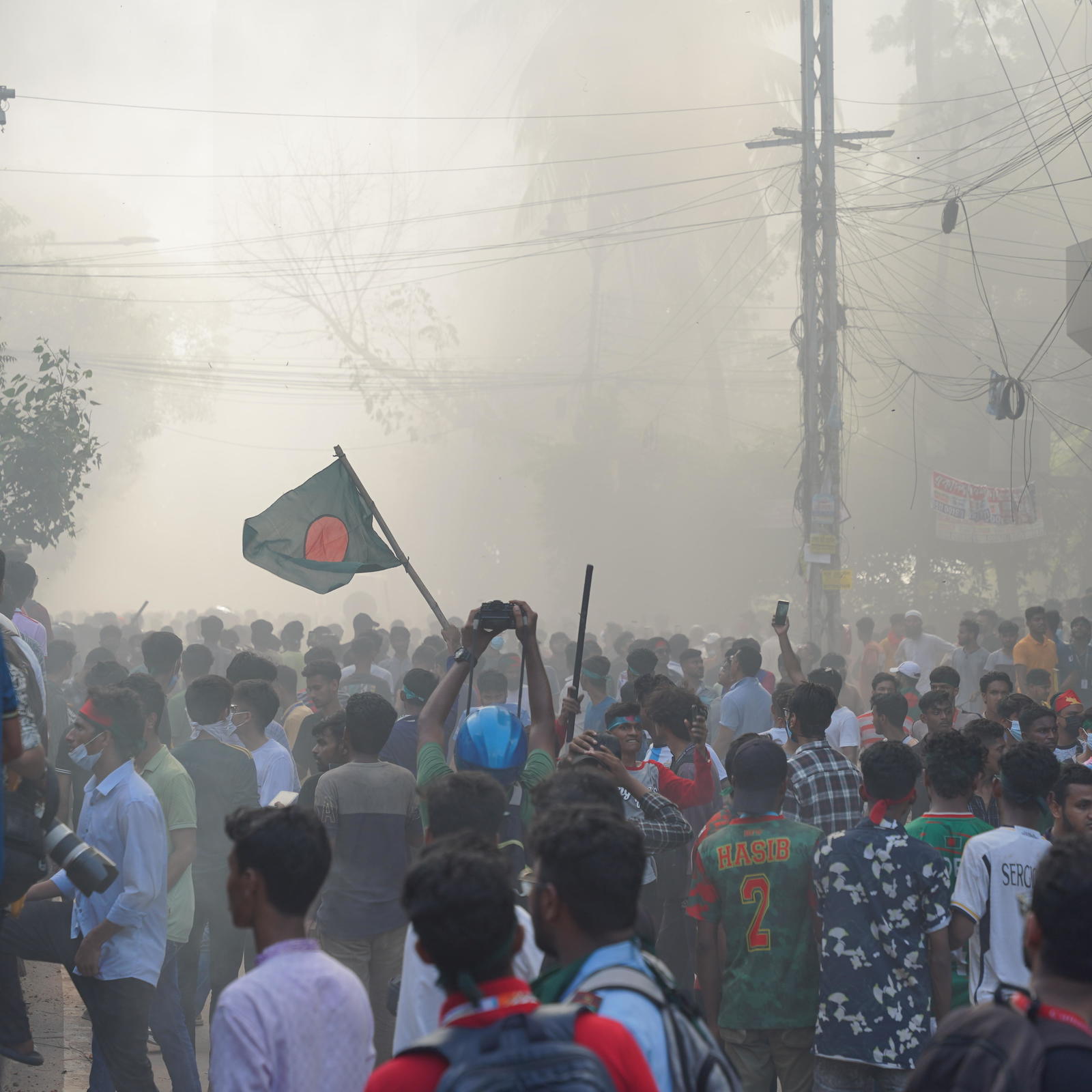Bangladesh’s government warns of stern action after house where independence was declared is razed

The interim government of Bangladesh, headed by Nobel Peace Prize winner Muhammad Yunus, said on Friday that it would stop vandalism and arson across the country. This comes amid concerns from India and a major opposition party in Bangladesh over attacks against a house associated with ousted former prime minister Sheikh Hasina.
Since Wednesday night, mobs have targeted Hasina supporters and vandalized businesses and homes in different parts of the nation. Many establishments owned by former legislators, Cabinet members, and leaders of Hasina’s Awami league party were set ablaze, apparently in a coordinated campaign that involved the former home Sheikh Mujibur Rahaman, Hasina’s father, located in Dhaka.
Hasina fled to India in August, following a student-led uprising which ended her 15-year reign.
In a short statement issued early Friday morning, the Press Wing of Yunus warned that harsh actions would be taken to stop such violence.
|
The interim government is deeply concerned that individuals and groups have attempted to vandalize or torch institutions and establishments throughout the country. The government will take strong measures to prevent such acts,” said the statement.
The government said it was prepared to protect life and property for the people.
In a statement issued late Friday afternoon and attributed to Yunus, the interim leader urged all citizens to “immediately restore complete law and orders and ensure that there will be no more attacks on” property associated with Hasina’s family and her supporters.
These statements were made more than 24 hour after the attack that took place on the building where Rahman had declared Bangladesh’s Independence in 1971. Wednesday’s attack was the culmination of a day-long social media campaign by Hasina opponents and student leaders. They called for a “bulldozer parade” towards Rahman’s home, which Hasina had turned into a Museum. The police watched as the protesters smashed the building. Later, a team of soldiers tried to stop them.
The Associated Press was told by an intelligence official in Dhaka that the arson and vandalism at Rahman’s house led to reports of 70 attacks in Bangladesh. Daily Star, the country’s most important English-language newspaper, reported on Friday that Hasina supporters were targeted by violence in at least twenty districts. The Channel 24 Dhaka TV station reported that violence had occurred in at least 35 district across the country. Station reported that the village residence of Hasina’s veteran politician and former Bangladesh President, Abdul Hamid was among the targets.
Since Hasina’s ouster, mobs repeatedly announced their protest plans and broadcasted them live on mainstream television or social media. According to rights groups, at least 80 Islamic shrines of sufism have been attacked by hard-line Islamists. The violence this week was also a response to allegations made by a prominent minority rights group, that the interim government had failed to protect the minorities. This claim has been denied by authorities who state the incidents occurred because of “political” reasons and not community-related issues.
In an early Friday statement, the Bangladesh Nationalist Party, led by Khaleda zia, Hasina’s main political opponent, called on the Yunus government to “bring this situation under control.”
Otherwise, anarchy would spread throughout the country. The statement stated that it was timely for us to call for the strict implementation of law, order, and to make government and state roles more visible.
In a statement issued on Thursday, India condemned the destruction of Rahman’s home, calling it a symbol for a “heroic struggle.”
The article emphasized the importance of Rahman’s residence to the development of Bangladesh’s identity.
All those who cherish the freedom struggle which has nurtured the Bangla identity and pride, are aware of the significance of this residence to the national consciousness in Bangladesh. The statement states that this act of vandalism must be condemned.
Nazmul Kalimullah, a political analyst from Bangladesh, said that violence of this kind could be a grave threat to the desire for a democratic transformation through elections.
“The state’s failure to prevent such vandalism and chaos could spark further chaos.” He said that these should not be overlooked.
Yunus said that a new poll will take place either in June or December 2026.








No Comments